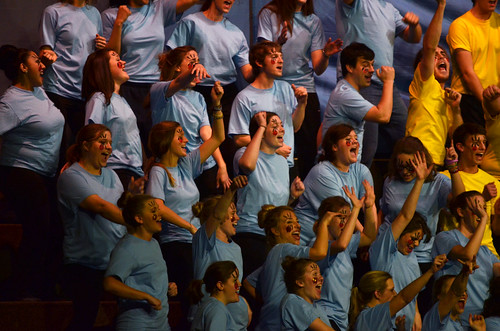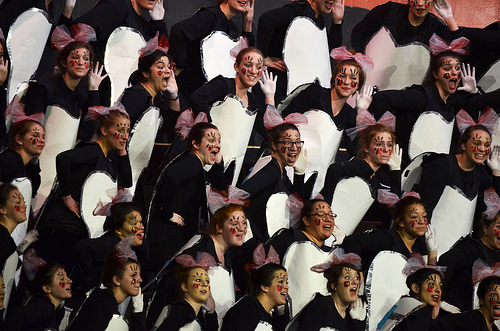Sing Song class and club acts have started a new tradition by participating in a vocal trade-off.
Different clubs and acts decided to take part in this vocal trade-off where they perform their acts for each other.
“About four years ago, some of our student directors for club and class groups thought it would be fun to sing for each other, so they set up a time where the groups could sing with each other,” said Tom Craig, director of student activities and productions. “It was optional, but the groups that did it had a whole lot of fun.”
Vocal trade-offs serve as more than a tradition that brings students together, but also a way for acts to improve their performance.
“When groups sing for each other, it adds a whole other layer to the Sing Song process that creates fun and camaraderie,” Craig said.
The tradition wasn’t always an official event, but started as a simple trade-off between clubs.
“For years, brother and sister clubs have sang for each other, but organizing an event where classes could sing to each other took this interaction to a whole new level,” Craig said.
Students who have participated in the vocal trade-off said it has been beneficial to their show acts and see it as a positive experience.
“I think trades are a great tradition,” said Nick Tatum, intern for the office of student productions. “It’s a fun and beneficial way to practice performing. I think it also serves to build closer relationships and to get excited about the upcoming performances.”
Some groups even go as far as to ask that special guests review their performances and offer critiques.
“As the manager of the resource team, I’ve had the opportunity to get to listen to every act thus far,” Tatum said. “It’s been fun to bounce around to different practices to give the groups new perspectives.”
It is an unspoken rule that men’s clubs do not sing for other men’s clubs and the same goes for women’ clubs.
Lauren Pratt, junior psychology major from Lawrenceville, N.J. and Alpha Kai Omega Sing Song director, took the initiative to arrange a trade-off with the men of Pi Kappa.
“I think it’s good because we encourage each other and it’s good motivation for the group to perform better because they have an audience,” Pratt said.

Juniors and seniors sang for one another in preparation for Sing Song performances. (Optimist photo by Melany Cox)

